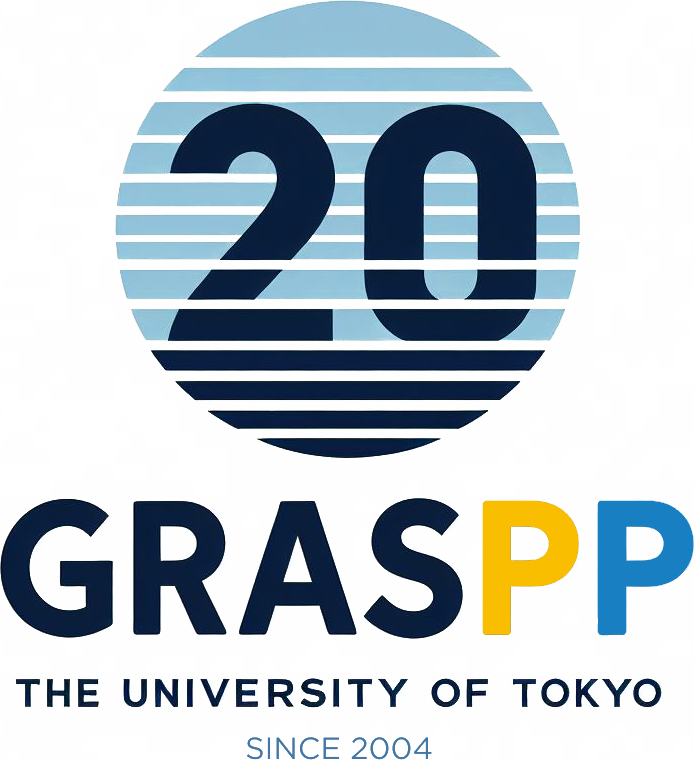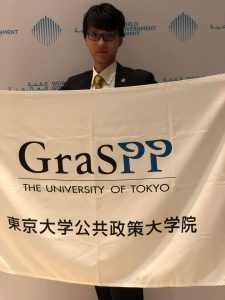 It was truly an honour to be able to participate in the 9th LKY-Japan Study Tour with wonderful and talented students from Lee Kuan Yew School of Public Policy, National University of Singapore and The University of Tokyo, Graduate School of Public Policy. Although I joined at the half way point during the Tokyo part of the tour, I have to admit I enjoyed every bit of it. Being able to visit places such as TeamLab Headquarters, METI (Ministry of Economy, Trade and Industry), and JAXA (Japan Aerospace Exploration Agency) was an enriching experience. Having fruitful discussions and exchanges with policymakers, researchers and entrepreneurs have made me realize the crucial importance of innovation to tackle pressing socio-economic and political issues that are prevalent in Japan and other respective countries.
It was truly an honour to be able to participate in the 9th LKY-Japan Study Tour with wonderful and talented students from Lee Kuan Yew School of Public Policy, National University of Singapore and The University of Tokyo, Graduate School of Public Policy. Although I joined at the half way point during the Tokyo part of the tour, I have to admit I enjoyed every bit of it. Being able to visit places such as TeamLab Headquarters, METI (Ministry of Economy, Trade and Industry), and JAXA (Japan Aerospace Exploration Agency) was an enriching experience. Having fruitful discussions and exchanges with policymakers, researchers and entrepreneurs have made me realize the crucial importance of innovation to tackle pressing socio-economic and political issues that are prevalent in Japan and other respective countries.
The most important experience that I cherish the most from this trip will be the discussions that I had with the LKY students. Their insights and perspectives towards issues such as aging population, education or technology in Japan were very unique and fresh. Majority of the participants from the LKY have been working in their respective ministries or in the private sector. Therefore, to hear their firsthand experience in tackling some of the problems in their countries was very inspiring. I have realized once again that discussions are very important, and to be really honest, Japan is still not on par with other countries in terms of bringing in external voices. Therefore, interacting with students from LKY and listening to them question about Japan was very enlightening for UTokyo students. Often times, especially for Japanese students, we do not question as to why Japan is aging at a rapid pace, or why Japan focuses on robotics. These are very natural, and seen as a norm. Therefore, seeing Japan from their eyes and perspectives was very stimulating. I believe that unique opinions contribute to innovative ideas, and innovative ideas can be a breakthrough in solving societal problems not only in Japan, but around the world.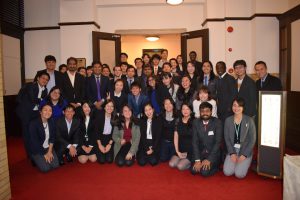
To conclude, I hope that this wonderful exchange between LKY and UTokyo GraSPP will continue, and that the bonds forged during this exchange will last for a life time. In the end, I would like to express my gratitude to all the organizers, participants, institutions and sponsors for this great opportunity.
P.S: If I have one suggestion, we should organize GraSPP Singapore Study Tour!
Shusei Yamamoto
University of Tokyo, Graduate School of Public Policy
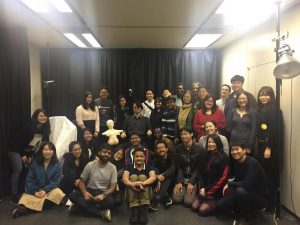
I am honored to have such an opportunity to be one of the committee members of the 9th LKY Japan Study Trip. It is an amazing and unforgettable trip for me!
First of all, we visited Advanced Telecommunications Research Institute International (ATR) in Kyoto. The vivid explanations of the lecturers left us with a deep impression. The students of National University of Singapore also had great interest in the production and operation of robots. Everyone was asking questions positively and interested in interacting with the robot. During our free time in the afternoon, we went to Mountain Arashi, a famous attraction in Kyoto. Everyone fully experienced the beautiful natural scenery of Japan, and the students of LKY also relaxed the exhaustion due to the all-night flight. In the evening, we enjoyed the non-verbal performance show which is full of Japanese style in Gear Theatre. Everyone was immersed in the wonderful performance, and it made a perfect end to the first day of this Japan Study Trip. On the second day of the Kyoto tour, we visited Kyoto’s most famous Kinkakuji Temple and Kiyomizu-dera Temple and exchanged with the students of Kyoto University. Accompanied by the students of Kyodai made this trip more memorable and wonderful.
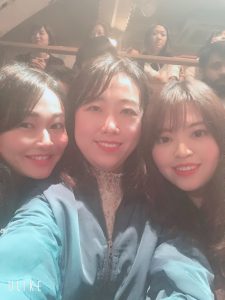
Before this trip started, as the committee members we held several meetings to discuss the specific schedule of the trip. In order to allow the students of the National University of Singapore to better communicate with Japanese professors and students, we organized and planned the Singapore-Japan Friendship Reception and GraSPP Day. On the one hand, in order to let LKY students communicate with Japanese congressmen, government officials, and other policymakers to understand the modern political system and policy-making process of Japanese society and to enhance their understanding of Japan. On the other hand, through GraSPP Day, LKY students and GraSPP students interacted and discussed each other academically. LKY students were divided into 3 groups, and GraSPP students were divided into 2 groups and held the presentation about Japan’s current situation on innovation and interacted through Q&A. In the panel discussion session, the professors gave wonderful lectures about “How could universities foster innovation and entrepreneurship?” and pushed GraSPP Day to a climax. At the dinner party, everyone enjoyed talking about the beautiful scenery and places that have been visited in both Tokyo and Kyoto, as well as the visiting Japanese digital and Venture Companies, such as the Teamlab office and WOTA.
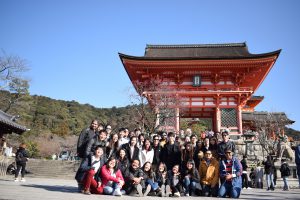
In the relaxed and pleasant atmosphere, we learned about the history and modernity of Japan. The deep cultural and ideological exchanges, as well as the understanding of the innovation and new business models of Japanese companies, made this study trip profound and valuable.
As one of the organizers of this trip, there are many trivial things to be dealt with in the preparation of the previous period. For instance, the selection of participants and the ordering of food and drinks and the production of posters have taken me a lot of time and energy. Moreover, as a Chinese student, organizing and communicating in two non-native languages, Japanese and English, was also a big challenge for me. However, during this trip, I enjoyed communicating with the students from Singapore. And I saw that everyone enjoyed the trip and felt that my contribution was worthwhile.
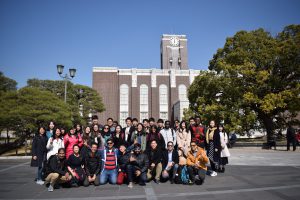
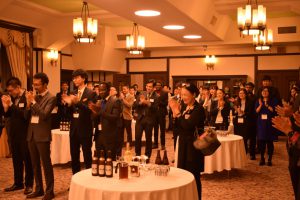
Jiawen Ren
